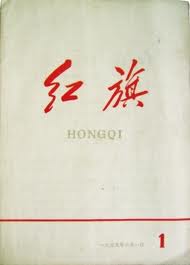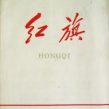
Central Party School’s Critiques Suggest New Leadership Dynamics
Publication: China Brief Volume: 12 Issue: 12
By:

Political reform in China since Deng Xiaoping’s “Southern Tour” in 1992 has seemed a distant if always tempting narrative for analysts and observers. The cycles of foreign hope and disappointment with Chinese leadership attest to this. The most recent stirrings of political reform discussion may be keeping within strict boundaries that do not challenge the CCP’s right to rule, but recent articles in the official Chinese media suggest this discussion is more than mere rhetoric—or, at least, has political implications for the 18th Party Congress (“Storming the Castle of the Status Quo,” China Brief, April 26). Two contradictory commentaries on anti-corruption—one calling for “acceptable levels” while the other arguing for zero-tolerance—at the end of May suggested growing divides in the leadership over what political reform should accomplish (China Youth Daily, May 31; Global Times, May 29). The China Youth Daily made the more telling point, which seemingly undermines established dogma of socialism with Chinese characteristics: economic development will not resolve the corruption problem, only structural reform can do so. Two recent Central Party School articles suggest these contradictory currents are part of a wider political debate with more significance than diverging propaganda lines.
An article in the latest issue of the school’s journal, Red Flag, posed the question of whether Deng Xiaoping would approve of structural political reform. The answer, unsurprisingly, was “no,” at least as Westerners understand it. The CCP’s rule “suits China’s national conditions and is in accord with the fundamental interests of the people” (Red Flag, June 12). Structural political reform—if it did not include removing the CCP from power or implementing anarchy-causing, Western-style democracy—however, could be understood as China’s adaptation to the structural changes in society as well as dealing with the problems of bureaucracy, excessive concentration of power, corruption and local officials carving out exploitative fiefdoms. Combined with an attack on those who would walk away from the CCP’s leadership, the article seemed to be critical of those who supported the ousted Chongqing Secretary Bo Xilai and other counter-reformers.
Another Central PartySchool publication, the Study Times, more directly criticized Zhou Yongkang—now believed to be one of Bo’s supporters. The article “Who Will Manage Social Management” (shehui guanli shei lai guan) critiqued the Political-Legal Committee system, which Zhou heads, for having contradictions between its actions and its policies, suggesting its power should be diffused. The contradictions stemmed from the Political-Legal Committee ostensibly trying to claim authority over spheres already governed by other CCP and state organs, confusing the situation (Study Times, June 18). Ultimately, the article seems to imply Zhou’s position should be downgraded from the Political Standing Committee to subordinate the coercive aspects of preserving stability and social management to the larger concerns of CCP governance.
While easy to dismiss these articles as mere reform rhetoric, observers should note Vice President Xi Jinping—the forerunner to succeed President Hu Jintao—is also the president of the Central Party School. Hu and Xi have long been seen as on opposite sides of a leadership split between Hu’s China Youth League (tuanpai) faction and the princeling faction, composed of the offspring of CCP elite, but this notion may now be outdated. Ideology and the vision for the state may now be the prime division over the struggle for power (“The Politics and Policy of Leadership Succession,” China Brief, January 20). As China correspondent John Garnaut elaborated this spring in Foreign Policy, Hu, Xi and their immediate protégés share a common political lineage to the reformer Hu Yaobang, whose funeral sparked the political upheaval in 1989 (March 29).
The potential for this reform debate to divide the top leadership—which many inside and outside the CCP assume could be socially destabilizing—makes the People’s Liberation Army’s (PLA) willingness to guarantee political power a paramount consideration as the party steps into a debate about structural political reform. The repeated calls for PLA loyalty—the latest coming this week—probably should be read in this light (PLA Daily, June 17). These calls almost certainly do not mean that PLA officers are calling for “the separation of the military from politics, depoliticize the military or ‘nationalization’ of the PLA,” leaving the CCP undefended (PLA Daily, March 19; China Daily, March 13). The annual arrival of new PLA soldiers in their billets during the spring months account for some of these calls, because new soldiers need to be indoctrinated, but political scandal and struggle may account for others (“Politics and the PLA: Securing Social Stability,” China Brief, March 30). The PLA and the People’s Armed Police, however, are the guarantors of CCP power and this year’s 18th Party Congress will witness a remarkable leadership transition. The CCP fears hostile forces will make “more subtle ideological penetration efforts” and expand infiltration efforts to sabotage social stability to disrupt this transition (PLA Daily, June 17). As the leadership grapples with the delicate question of structural reform and generational change, the loyalty calls suggest the CCP sees this debate as vital but potentially destabilizing and the PLA should not let real or potential political divisions change its basic relationship with the party.
True systemic political reform may not be in China’s near future; however, the discussion inside China suggests the status quo is increasingly unacceptable to China’s leaders. Structural political reform may remain elusive, but the CCP appears to be engaged in a serious debate about the future of China—serious enough that Beijing is concerned leadership splits may emerge that would damage Chinese stability. Without a loyal PLA, the party leadership may not have the confidence to continue their discussion, leading once again to political stagnation. The Central Party School attacks could indicate a new alignment between Hu and Xi, disrupting conventional wisdom about factional divides. Although uncertain, this possible realignment would have profound implications for the makeup of the next Politburo Standing Committee and the prospects of even limited CCP-centric reforms.





